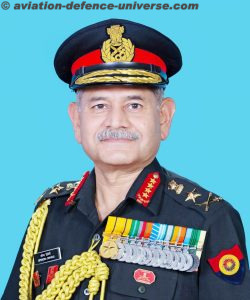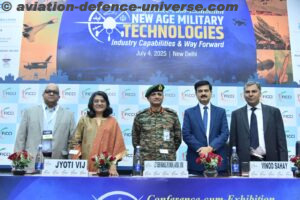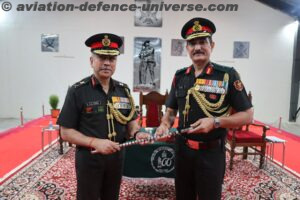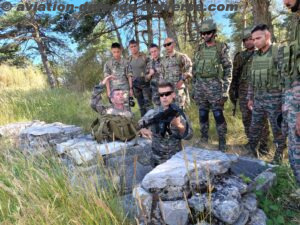New Delhi. 17 November 2024. General Upendra Dwivedi, the Chief of Army Staff (COAS) will embark on an official visit to Nepal next week, marking another significant chapter in the evolving military diplomacy between the two nations. This visit underscores the deep-rooted military ties between India and Nepal, which have flourished over a century of shared history, strategic interests, and cooperationon various security and defence matters.
India and Nepal have always shared a special relationship, reinforced by cultural, historical, and geographical factors. This bond has evolved into a robust military partnership that plays a key role in enhancing regional security.
General Dwivedi’s visit is expected to further strengthen these ties, paving the way for continued collaboration on multiple fronts, including joint military exercises, training programs, and strategic discussions on regional and global security concerns.
Military Cooperation
Nepal has continued its close ties with India, with regular exchanges of military training, visits, and defence modernisation. India & Nepal are critical partners in enhancing mutual military capabilities, particularly through training programs.
General Dwivedi’s visit is expected to *focus on the ongoing defence modernisation in both militaries, through various initiatives. Both countries offer courses to military personnel in reputed military institutions. This collaboration has seen over 300 Nepali Army personnel trained in India this year alone, in specialised fields such as counterinsurgency, leadership development, and peacekeeping. Similarly, India Army personnel also undergo courses in Nepal.
Joint Military Exercises and Cooperation
A key pillar of India-Nepal military cooperation is the annual Surya Kiran joint military exercise, which enhances interoperability between the two armed forces. This exercise, which focuses on counterterrorism, disaster relief, and humanitarian assistance, will see its 18th edition in December 2024 in Nepal. The scope and complexity of this exercise are set to be expanded, providing an opportunity to further improve the operational synergy between the two armies.
Additionally, India has supported Nepal in its military modernisation by supplying various forms of military hardware, including small arms, vehicles, and advanced training simulators. Through the Nepal-India Bilateral Consultative Group on Security Issues (NIBCGSI), the two countries have held 15 meetings to discuss and address defence cooperation, and several equipment needs have been met under this forum. The visit of General Dwivedi will provide an opportunity to further enhance these engagements, including discussions on improving disaster response mechanisms and expanding regional security cooperation.
Honourary Military Rank and People-to-People Ties
An integral part of the military relationship is the tradition of conferring the honorary rank of General on the respective Chiefs of Army Staff of both countries. General Dwivedi’s visit is expected to further cement this symbolic bond and reaffirm the shared military legacy between India and Nepal.
The large population of Indian ex-servicemen in Nepal also plays an important role in strengthening the ties between the two countries. With over 88,000 Indian Army veterans residing in Nepal, many of whom are involved in various sectors such as education, healthcare, and rural development, this community serves as a bridge that deepens the people-to-people connections. The Indian ex-servicemen are a unique and vital part of the bilateral relationship, contributing to both socio-economic development and cultural exchanges.
The Chiefs of Armies of both the countries share a close bond and regularly meet in Retired Chiefs of Army Staff Conclave. Last conclave was held in Delhi in March this year.
General Upendra Dwivedi is also likely to visit Shri Muktinath Temple in Nepal. The first CDS of India, General Bipin Rawat also wanted to visit the temple. In his memory, a Bell named ‘Bipin Bell’ was installed in the temple in February 2023.
A Stronger Defence Partnership
General Dwivedi’s upcoming visit to Nepal is a significant event in the context of India-Nepal military diplomacy. The visit not only reflects the enduring strength of the two nations’ military ties but also highlights the shared commitment to regional security, stability, and the fight against common threats like terrorism and extremism. As both countries continue to enhance their cooperation in defence, the India-Nepal military partnership will remain a key factor in ensuring peace and stability in South Asia.

























































































































